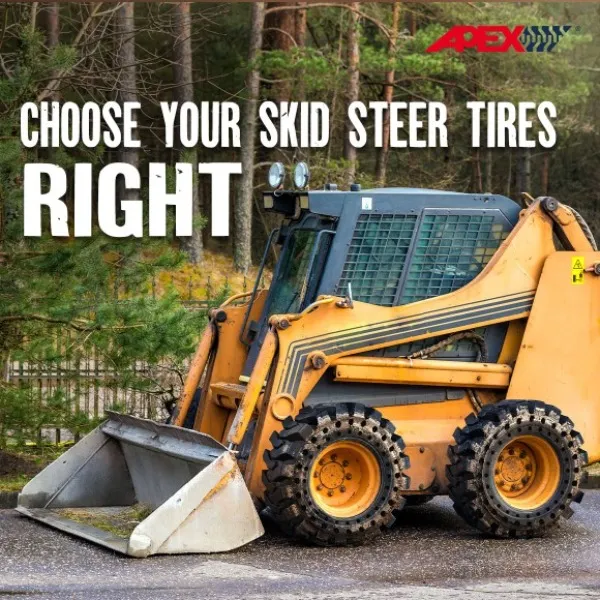Choose Your Skid Steer Tires Right

When selecting skid steer tires, consider the following factors:
Tread Pattern: The tread pattern determines the tire's performance on different surfaces. For instance, if you primarily operate on rough terrain, tires with deep, aggressive treads offer better traction and durability. Smooth tires are ideal for indoor applications where minimal surface disturbance is required.
Tire Size: Choose tire sizes that match your skid steer loader's specifications. The size affects the machine's stability, load-carrying capacity, and overall performance.
Tire Type: Skid steer tires come in various types, including pneumatic (air-filled) and solid (foam-filled or solid rubber). Pneumatic tires provide a cushioned ride and better traction, making them suitable for uneven surfaces. Solid tires are puncture-proof and require less maintenance, making them ideal for construction sites with debris.
Application Specific: Consider the specific tasks and environments where your skid steer loader operates. For instance, if you work in demolition or recycling, tires with cut-resistant compounds and reinforced sidewalls can extend tire life.
Operating Conditions: Evaluate the weather conditions and temperature ranges your skid steer loader will encounter. Some tires are designed for all-season use, while others perform better in specific climates.
Budget and Longevity: Balance your budget with the expected lifespan of the tires. Cheaper options may save money upfront but could require more frequent replacements.
In conclusion, choosing the right skid steer tires involves assessing your specific needs, operational environment, and budget constraints. By selecting tires that match these criteria, you can maximize the efficiency and durability of your skid steer loader, ultimately improving your overall productivity.
For expert advice on selecting the best skid steer tires for your needs, contact us now!





